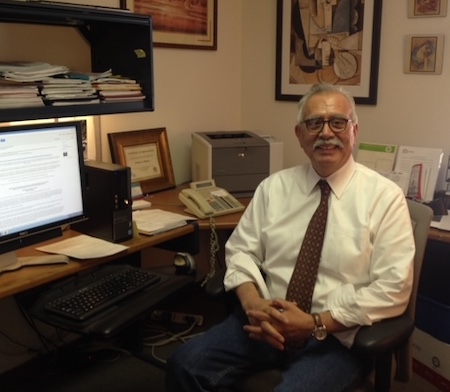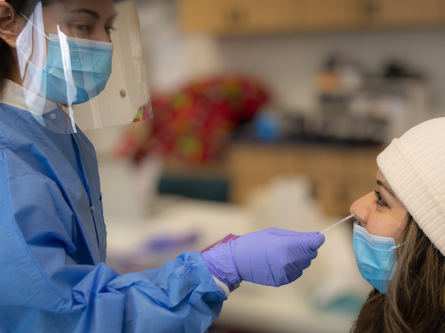By Perfecto Muñoz, West Modesto Community Collaborative
The COVID 19 crisis continues to be considered within the Latino Community and most challenged agricultural families that are living in small rural communities in California.
Agencies from all levels, from state government to local community-based organizations have passed out educational information in English and Spanish using all different forms of social media. The results have not been that impressive. So, what is the solution? No one has a quick answer to this question.
I believe that community engagement could be our answer to the COVID-19 farmworker participation question. My father told me “If you want individuals to participate in efforts you must find the right person.” We need to find that one person or persons who families respect.
When one thinks about community engagement, what does this mean? The meaning comes from all different directions:
Community is a feeling of fellowship with others because we share common attitudes, interests, and goals.
Engagement is the conditions that a community must agree to before they will accept the importance of vaccination. One would argue that community engagement leads to conflict. My response is that conflict results in change.
Community engagement only happens when you have the following elements:
-
Communication: the need to first sit down and find out what concerns farmworkers have with the vaccine and what they have heard. We often suggest that they are limited in knowing what is best for them. They lack the education to process the idea and need for vaccination; to find this connection we need to meet with them at their homes and family events. We need to communicate and create a sense of respect.
-
We must maintain constant connection. We have seen so many programs offering assistance that had little or no impact for the agricultural families. And generations of families have been hearing the same story: "I am here to help you." Why would I believe the same statement that has been told to parents and grandparents of agricultural families with the same message but different person? To connect with them they must feel that person is speaking with his heart and soul. That is how they can really trust. No more "Trust me" or "We need to trust each other." Or "we´ll help you until funds are available."
This, in my opinion, is what is missing in our efforts to educate Latino and agricultural communities to have them fully engaged in the discussion lead by the community leaders they respect, not the experts.
The power of the community leads to change.
 Perfecto Munoz is the Chief Executive Officer of West Modesto Community Collaborative, a community based not for profit organization that believes in the strength of the community residents to come together for effective change. Munoz has a master´s degree in Public Health from the San Jose State University and was selected to receive the 2016 Hispanic Health Leadership Award by the National Hispanic Medical Association.
Perfecto Munoz is the Chief Executive Officer of West Modesto Community Collaborative, a community based not for profit organization that believes in the strength of the community residents to come together for effective change. Munoz has a master´s degree in Public Health from the San Jose State University and was selected to receive the 2016 Hispanic Health Leadership Award by the National Hispanic Medical Association.
See what other community-based organizations are part of the ÓRALE project.



